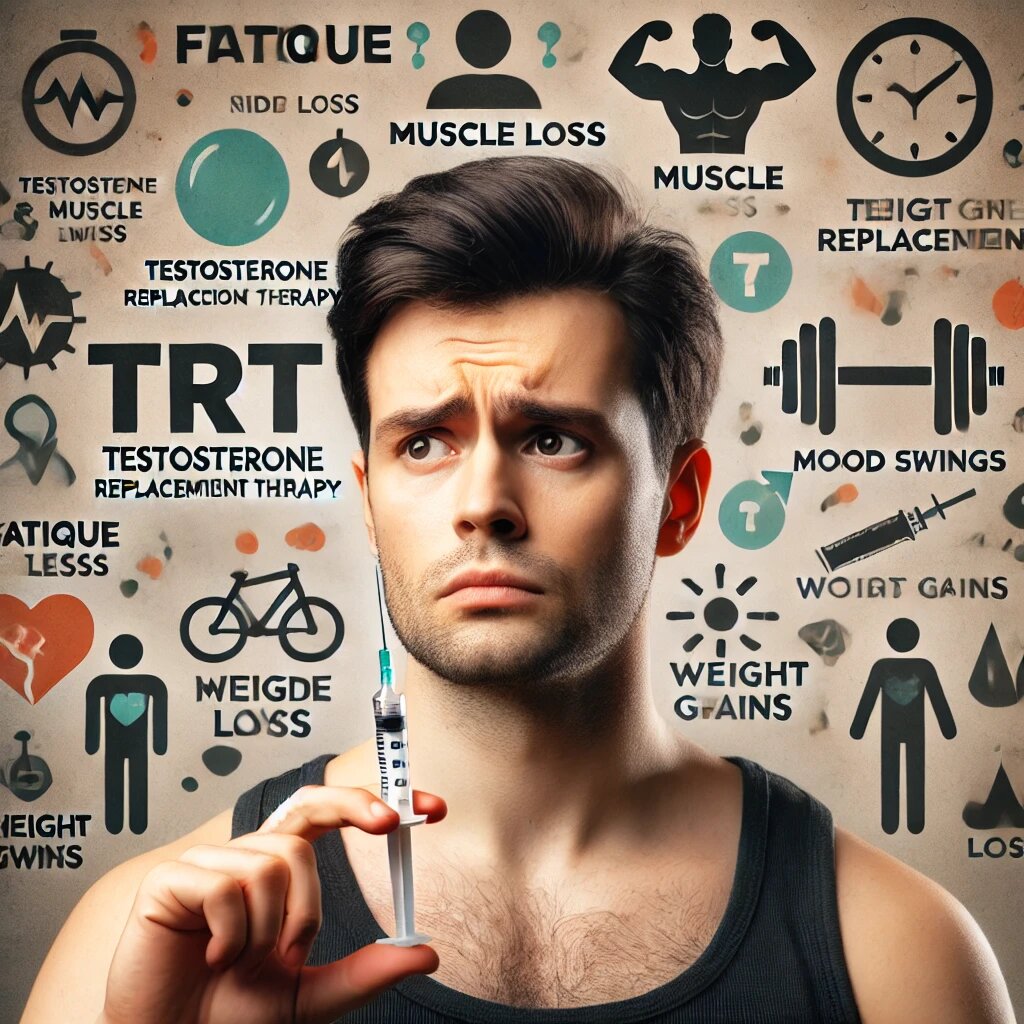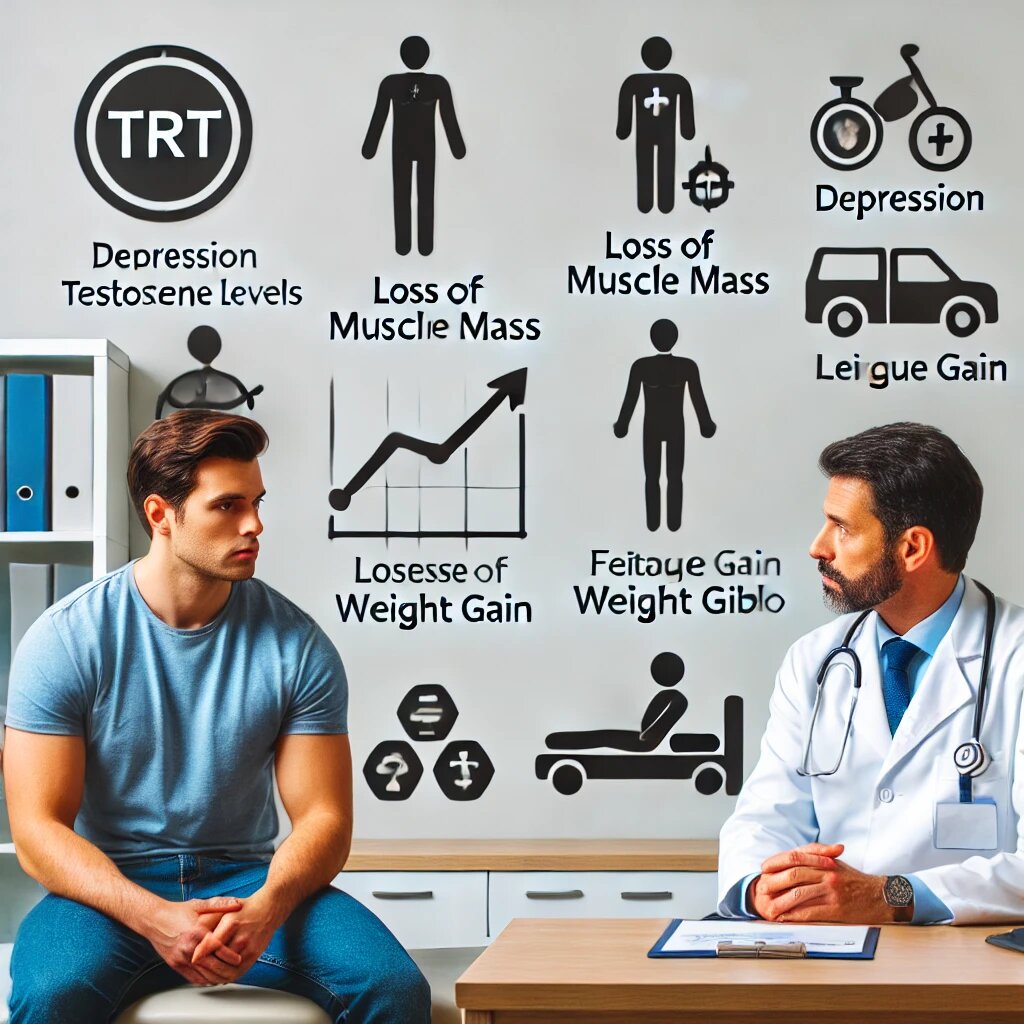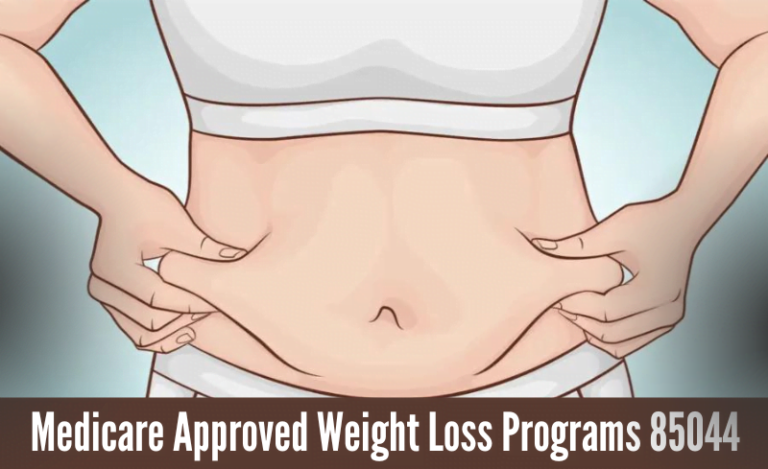What Happens When You Stop Trt?

Testosterone Replacement Therapy (TRT) has become a common treatment for those suffering from low testosterone levels, also known as hypogonadism.
TRT can help alleviate symptoms such as fatigue, decreased libido, depression, and muscle loss. However, there may come a time when an individual decides to stop TRT, either due to side effects, personal choice, or medical advice. This article explores what happens when you stop TRT and how to manage the transition effectively.
Understanding Testosterone Replacement Therapy
Before delving into what happens when you stop testosterone replacement therapy, let’s first understand the basics of TRT. As mentioned earlier, TRT involves supplementing exogenous testosterone into the body to restore levels that have naturally declined with age.
Various forms of TRT are available, and the most common ones include injections, patches, gels, and pellets. These treatments aim to maintain testosterone levels within a healthy range and alleviate symptoms associated with low testosterone.
Reasons for Stopping TRT
There are several reasons why someone might choose to stop TRT, including:
- Side Effects: Some individuals may experience adverse effects from TRT, such as acne, sleep apnea, increased red blood cell count (which can lead to blood clots), or prostate issues.
- Health Concerns: Long-term use of TRT is still being studied, and some may have concerns about potential risks, such as cardiovascular problems or prostate cancer.
- Lifestyle Changes: Significant lifestyle changes, such as weight loss, improved diet, increased exercise, and better sleep, can naturally boost testosterone levels, making TRT unnecessary.
- Personal Choice: Some may prefer to manage their symptoms without medication or wish to explore alternative treatments.
- Medical Advice: A healthcare provider may recommend stopping TRT due to specific health conditions or changes in medical status
Also Read: Testosterone Injections Ruined My Marriage
What Happens When You Stop TRT?
When you stop TRT, your body will go through a period of adjustment as it attempts to return to its natural hormone production. This transition can vary in duration and intensity depending on several factors, including how long you were on TRT, your age, and your overall health. Here are some common changes you might experience:
Hormonal Fluctuations
Stopping TRT abruptly can lead to a sudden drop in testosterone levels, causing hormonal fluctuations. Symptoms of low testosterone may re-emerge, such as fatigue, mood swings, irritability, and decreased libido. These symptoms can be challenging but often improve as your body adjusts.
Decrease in Muscle Mass and Strength
One of the benefits of TRT is increased muscle mass and strength. When you stop TRT, you may notice a gradual loss of muscle mass and a decrease in strength. Regular exercise, particularly resistance training, can help mitigate these effects and maintain muscle mass.
Increase in Body Fat
Testosterone regulates body fat distribution. Without TRT, you might experience increased body fat, particularly around the abdomen. Maintaining a healthy diet and regular physical activity can help manage weight gain.
Changes in Mood and Energy Levels
Many individuals on TRT report improved mood and energy levels. When stopping TRT, some may experience a return of depressive symptoms, irritability, or fatigue. It’s important to monitor your mental health and seek support if needed, whether through counselling, support groups, or other resources.
Sexual Function and Libido
TRT can significantly improve libido and sexual function. Upon discontinuation, you might notice a decrease in sexual desire and performance. Open communication with your partner and consulting a healthcare provider can help address these concerns.
The Potential Effects of Stopping TRT
While TRT can provide many benefits for men with low testosterone levels, it’s essential to understand the potential effects that may occur when stopping treatment. Here are some possible outcomes:
Reversal of Symptoms
The most significant effect of discontinuing TRT is the return or exacerbation of symptoms associated with low testosterone. Many men who undergo TRT experience improved libido, energy levels, and mood while on treatment.
Hormonal Imbalance
When you discontinue TRT, your body must readjust to producing testosterone naturally. This process can take time, and your hormone levels may be imbalanced during this period.
Muscle Loss
Testosterone plays a crucial role in maintaining muscle mass and strength. When you stop TRT, your testosterone levels may drop significantly, which can result in muscle loss. This is why it’s essential to continue with regular exercise and maintain a healthy diet even after stopping TRT.
Cardiovascular Risks
Low testosterone has been linked to an increased risk of cardiovascular disease. While TRT can help improve cardiovascular health, stopping treatment abruptly can potentially reverse these benefits.
Testicular Shrinkage
One of the potential side effects of TRT is testicular shrinkage. The body’s natural testosterone production decreases when exogenous testosterone is introduced.
More Read: Testosterone Injections: Benefits and Side Effects

Benefits of Testosterone Replacement Therapy (TRT)
Testosterone Replacement Therapy (TRT) is primarily used to treat men with low testosterone levels, a condition known as hypogonadism. Here are some of the key benefits associated with TRT:
- Improved Libido and Sexual Function
- Increased Energy Levels
- Enhanced Mood and Reduced Depression
- Increased Muscle Mass and Strength
- Improved Bone Density
- Better Cognitive Function
- Enhanced Quality of Life
Tips for Navigating Stopping TRT
If you’re considering stopping TRT, here are a few tips to help navigate this decision:
- Speak with Your Doctor: Before making any changes to your treatment plan, it’s crucial to consult with your doctor. They can guide you through the best way to discontinue TRT and provide information on potential risks and side effects to watch out for.
- Taper Off Slowly: Instead of stopping treatment abruptly, it’s recommended to taper off slowly. This can help your body gradually adjust to the hormone level change and minimize severe symptoms or risks.
- Monitor Your Symptoms: After stopping TRT, tracking how you’re feeling physically and mentally is important. If you notice any concerning symptoms, speak with your doctor immediately.
- Consider Alternative Treatments: If you decide that TRT is no longer right for you, alternative treatments are available, such as lifestyle changes, natural supplements, and hormonal medications. Discuss these options with your doctor to find the best approach for your needs.
Conclusion
Stopping TRT is a personal decision that should be made with careful consideration and guidance from a healthcare provider. Understanding the potential changes and challenges that may arise can help you prepare and manage the transition effectively.
By adopting a healthy lifestyle, seeking medical monitoring, and accessing psychological support, you can navigate the process of stopping TRT and maintain your overall well-being.
Every individual’s experience is unique, and finding what works best for you is key to a successful transition.
FAQ:
What is TRT?
Testosterone Replacement Therapy (TRT) is a treatment used to boost testosterone levels in men with low testosterone due to aging or medical conditions.
What happens when I stop TRT?
When you stop TRT, your body may experience several changes as it adjusts to the absence of supplemental testosterone.
How quickly will I notice changes after stopping TRT?
The timeline for noticing changes can vary. Some individuals may start to experience symptoms within a few weeks, while others may take several months.
Can stopping TRT affect my fertility?
Yes, stopping TRT can impact fertility. While on TRT, natural testosterone production and sperm production can decrease.
Are there any withdrawal symptoms?
Stopping TRT doesn’t typically cause withdrawal symptoms like those seen with some medications or substances.

